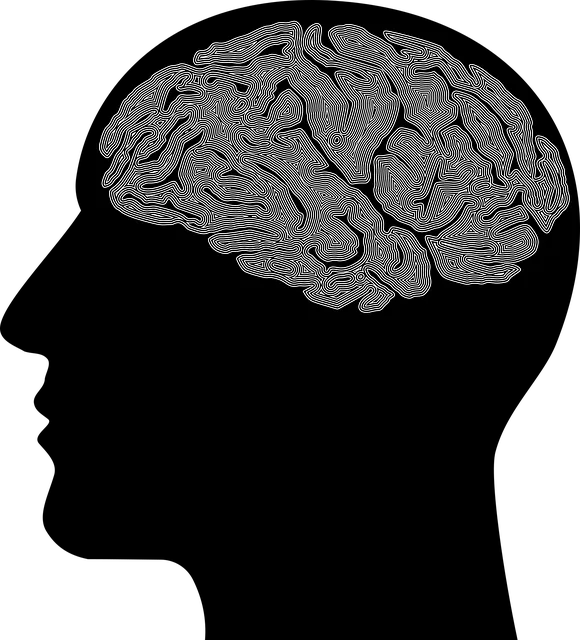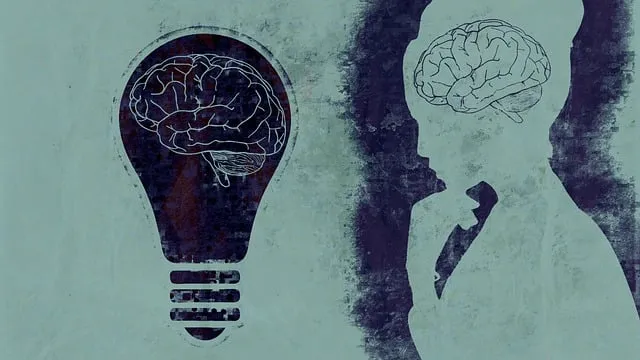The Kaiser Permanente mental health center in Boulder emphasizes journaling as a powerful tool for promoting mental wellness, offering a private space for daily or weekly reflections on thoughts and emotions. Regular journaling encourages introspection, enhances emotional intelligence, and tracks progress over time. It boosts confidence, clarifies thoughts, identifies behavioral patterns, and supports mental health education programs. Mindfulness and gratitude practices, backed by research from the center, significantly enhance mental wellness, reducing stress, anxiety, and fostering calmness and happiness. Tracking progress through journaling helps set goals, celebrate milestones, and gain insights into emotional triggers and patterns. The center's reviews highlight effective therapy approaches, including Mental Wellness Coaching, for better mood management and overall well-being.
“Unwind your mind and embark on a journey of self-discovery through the powerful practice of mental wellness journaling. Inspired by the expertise of the Kaiser Permanente Mental Health Center in Boulder, this comprehensive guide offers a holistic approach to enhancing emotional well-being. From understanding its benefits to setting up your ideal space, we explore effective techniques. Learn how mindfulness and gratitude practices can transform your journal into a tool for growth. Plus, discover methods to track progress and celebrate milestones in your mental wellness journey.”
- Understanding Mental Wellness Journaling: A Personal Journey
- Benefits of Journaling for Emotional Health, According to Experts at Kaiser Permanente Mental Health Center Boulder
- Setting Up Your Journal: Tools and Tips for Effective Practice
- Incorporating Mindfulness and Gratitude: Techniques to Enhance Well-being
- Tracking Progress and Celebrating Milestones in Your Mental Wellness Journey
Understanding Mental Wellness Journaling: A Personal Journey

Journaling is an incredibly powerful tool for cultivating mental wellness, offering individuals a private space to explore their thoughts and emotions. At the Kaiser Permanente mental health center in Boulder, we often emphasize the benefits of this practice as part of our comprehensive approach to mental health care. Mental wellness journaling is more than just writing; it’s a personal journey of self-discovery and growth. By committing time each day or week to jot down experiences, feelings, and reflections, individuals can gain valuable insights into their mental state.
This practice encourages introspection, helping to clarify thoughts, process emotions, and identify patterns in behavior or triggers for certain feelings. It’s a safe space where one can openly express their innermost thoughts without fear of judgment. Moreover, journaling can serve as a confidence-boosting mechanism, enabling individuals to track their progress over time and celebrate small victories in their mental health journey. Through this process, people engaged in mental wellness journaling may also benefit from enhanced mental health education programs designed to empower them with the knowledge and skills to maintain or improve their overall well-being, including strategies for depression prevention.
Benefits of Journaling for Emotional Health, According to Experts at Kaiser Permanente Mental Health Center Boulder

Journaling has emerged as a powerful tool for emotional health, backed by experts at Kaiser Permanente Mental Health Center Boulder. In today’s fast-paced world, where stress and mental health challenges are prevalent, especially among healthcare providers, this simple yet effective practice offers a sanctuary for self-reflection and healing. Regular journaling allows individuals to process emotions, gain clarity, and enhance overall well-being.
The benefits, according to the center’s reviews, extend beyond mere self-expression. It facilitates improved mood management by providing a safe space to explore and understand one’s feelings. Additionally, it can foster emotional intelligence—the ability to recognize and manage emotions effectively—which is crucial for healthcare professionals dealing with high-pressure situations. As a burnout prevention strategy, journaling encourages self-care practices, helping providers maintain resilience and a positive mindset, ultimately improving patient care.
Setting Up Your Journal: Tools and Tips for Effective Practice

Setting up your journal is a crucial step to ensure your mental wellness journey is effective and enjoyable. Start by choosing a space dedicated to your practice—a quiet corner in your home or a peaceful spot where you can reflect undisturbed. Select a physical journal that feels right; it could be a beautiful hardback notebook or a simple spiral-bound pad. Some folks prefer digital journaling apps, which offer flexibility and easy organization.
Consider incorporating tools like colored pens and markers to add visual appeal and emphasize different emotions. The Kaiser Permanente mental health center in Boulder recommends starting each entry with a prompt, such as “Today I’m grateful for…” or “What challenges did I face today?” These prompts can guide your thoughts and enhance emotional intelligence. Regularly reviewing past entries can also help identify patterns and provide valuable insights into your mental health journey, much like the Mind Over Matter principles suggest.
Incorporating Mindfulness and Gratitude: Techniques to Enhance Well-being

Incorporating mindfulness and gratitude practices into your daily routine can significantly enhance your mental wellness, as backed by research from prestigious institutions like the Kaiser Permanente mental health center in Boulder. Mindfulness involves being fully present in the moment, observing thoughts and feelings without judgment. This technique helps reduce stress and anxiety, fostering a sense of calm and clarity. By taking a few minutes each day to practice mindfulness—such as through meditation or mindful breathing exercises—you can cultivate a deeper connection with your inner self.
Gratitude journaling is another powerful tool for boosting mental health. Expressing thanks for the positive aspects of your life shifts focus from challenges to blessings, increasing happiness and life satisfaction. Incorporating this practice into your journaling routine encourages you to reflect on the good in your life, even during difficult times. This approach aligns with the principles of cultural sensitivity in mental healthcare practice, as it allows individuals to connect with their strengths and resilience, fostering a sense of empowerment and improved mental well-being. Additionally, expressing gratitude can strengthen relationships and create a positive feedback loop that enhances overall confidence boosting and stress management. Consider incorporating these techniques into your journaling routine, drawing from resources like the Stress Management Workshops Organization for guidance and support.
Tracking Progress and Celebrating Milestones in Your Mental Wellness Journey

Tracking your progress is an essential part of any mental wellness journey, and journaling provides a powerful tool for this self-reflection. As you consistently record your thoughts, feelings, and experiences, you begin to identify patterns and triggers that impact your emotional regulation. This practice allows you to set achievable goals and celebrate milestones, no matter how small they may seem. For instance, if you’ve successfully managed a challenging situation without resorting to unhealthy coping mechanisms, acknowledge this victory in your journal.
Regularly reviewing your entries can offer valuable insights into your progress over time. The Kaiser Permanente mental health center reviews in Boulder often highlight the effectiveness of various therapy approaches and programs, including Mental Wellness Coaching. These reviews can inspire hope and motivate you to continue your journey. By recognizing your achievements, no matter how modest, you’re fostering a positive relationship with yourself and strengthening your resilience, which is crucial for managing stress and maintaining emotional balance through the development of effective Stress Reduction Methods.
Mental wellness journaling is a powerful tool for self-discovery and emotional growth, as highlighted by experts at the Kaiser Permanente Mental Health Center in Boulder. By incorporating this practice into your routine, you can gain deeper insights into your thoughts and feelings, enhance mindfulness, and cultivate gratitude—all of which contribute to improved mental well-being. As you continue on your mental wellness journey, remember that tracking your progress and celebrating milestones are essential steps towards sustaining a healthy mind. So, take a dive into journaling, and let it be the game-changer it can be in fostering your overall mental health.






